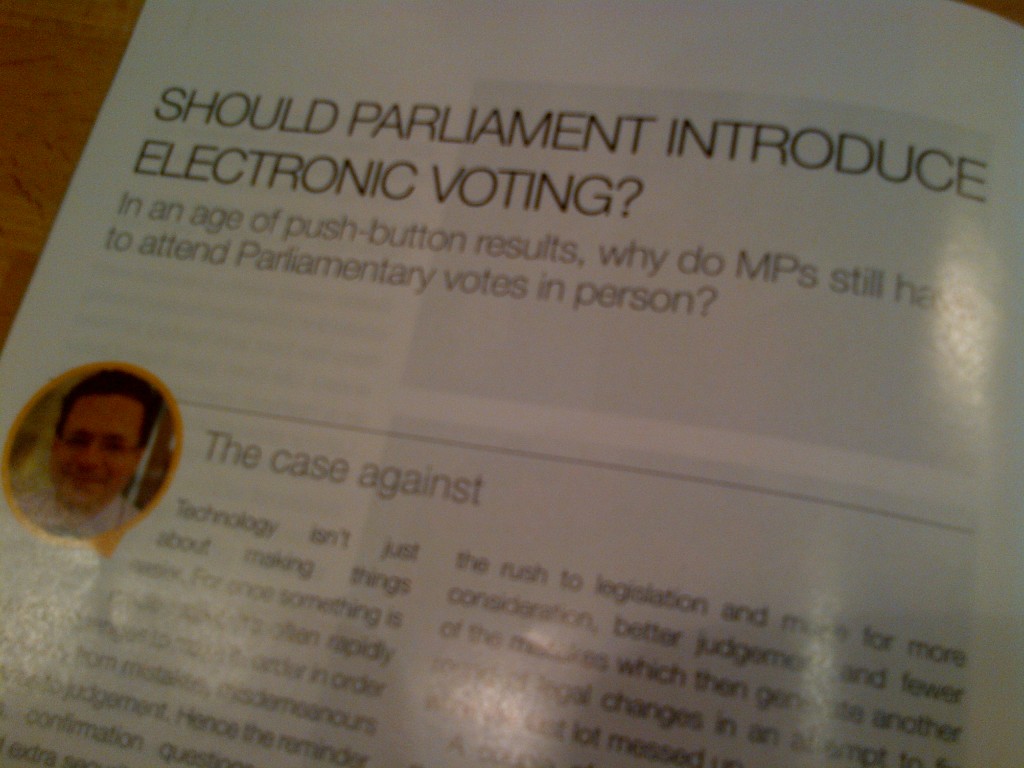Electronic voting in Parliament: the case against
 The latest edition of the Liberal Democrat magazine Ad Lib contains this from me arguing against the introduction of electronic voting to the Westminster Parliament:
The latest edition of the Liberal Democrat magazine Ad Lib contains this from me arguing against the introduction of electronic voting to the Westminster Parliament:
Technology isn’t just about making things easier. For once something is made easier, it’s often rapidly followed by changes to make it harder in order to protect us from mistakes, misdemeanours and rushes to judgement. Hence the reminder prompts, confirmation questions, warning signs and extra security hoops we encounter all the time.
So although electronic voting would make voting easier in Parliament, we should be very wary about assuming that easier is simply better. In particular, having to physically go and walk through a particular door to vote makes voting a matter of more reflection than a simple quick flick of an electronic signal. It gives a pause for thought and a greater sense of importance to voting. It also is a remarkably reliable and cheap way of voting.
It is slow, true, but even that is a virtue. For do we really have a problem with not enough legislation being voted on and passed by Parliament?
If anything, making voting even slower would be better as it would slow down the rush to legislation and make for more consideration, better judgement and fewer of the mistakes which then generate another round of legal changes in an attempt to fix what the last lot messed up.
A couple of small reforms would make the voting system in Parliament better: allowing Parliamentarians to formally record an abstention and also special remote voting facilities for seriously ill Parliamentarians. Forcing a sick person – who may have watched the whole debate on TV – then to pull themselves through a voting lobby takes the physical act of voting too far even for an enthusiast like me.
But electronic voting for all MPs or peers would be a solution in search of a problem. There are many things we need to improve about Parliament and our politics. Electronic voting doesn’t fix them.
UPDATE: I should have included MPs on parental leave in my list of exceptions for allowing voting remotely.
Electronic voting? Next thing you know, there would be a box for MPs to check to say “I have read and understood the proposed legislation”, and then where would we be?
It would also require changing the layout, or even venue, of the Commons.